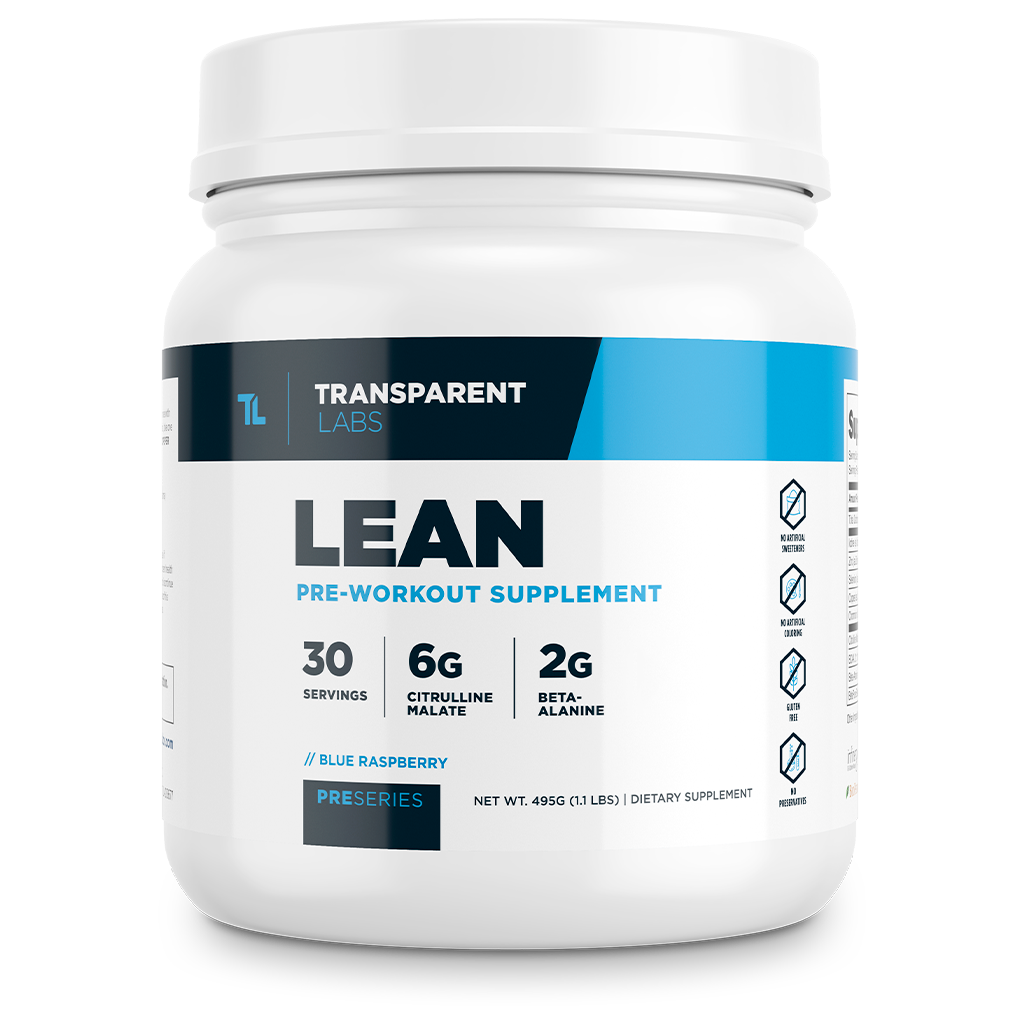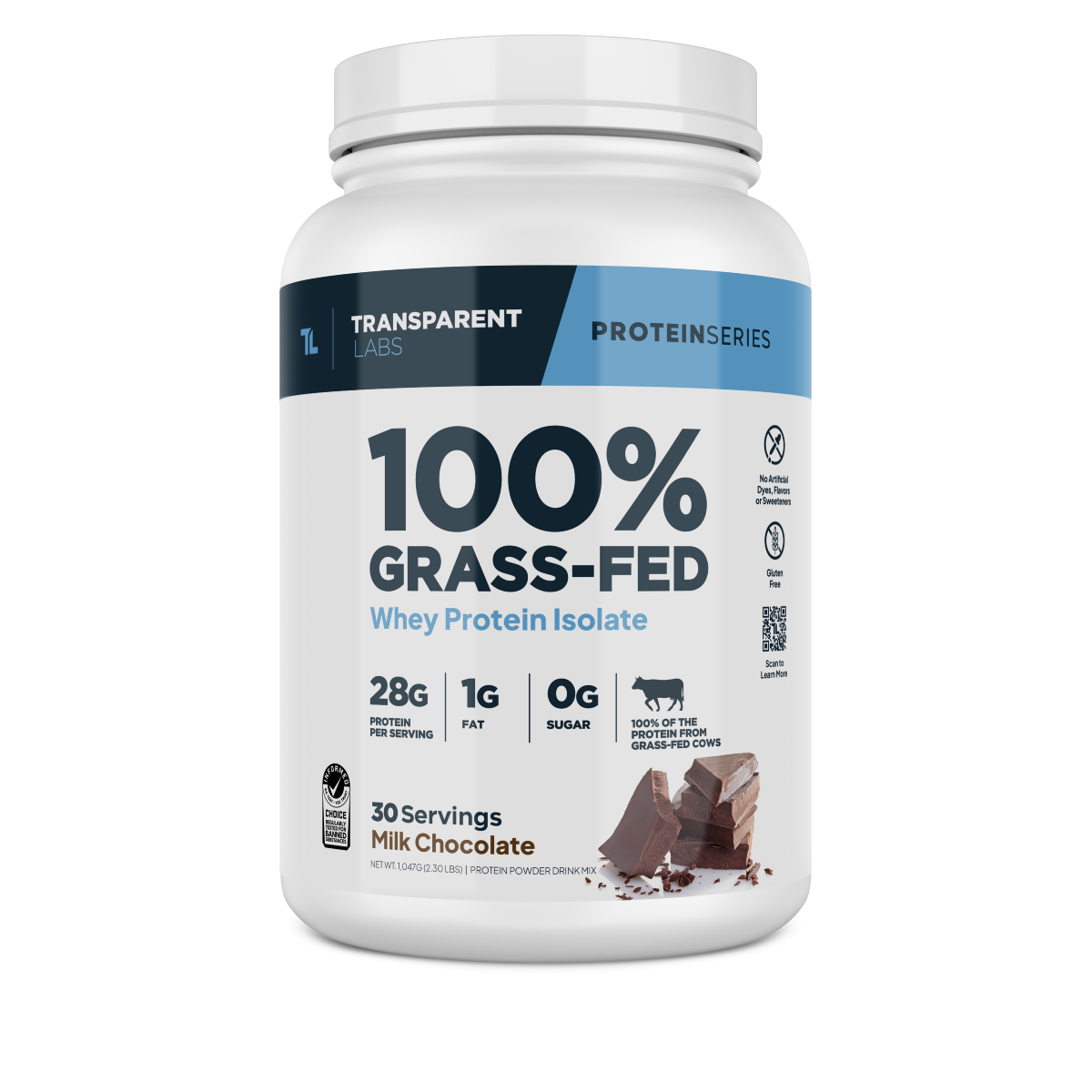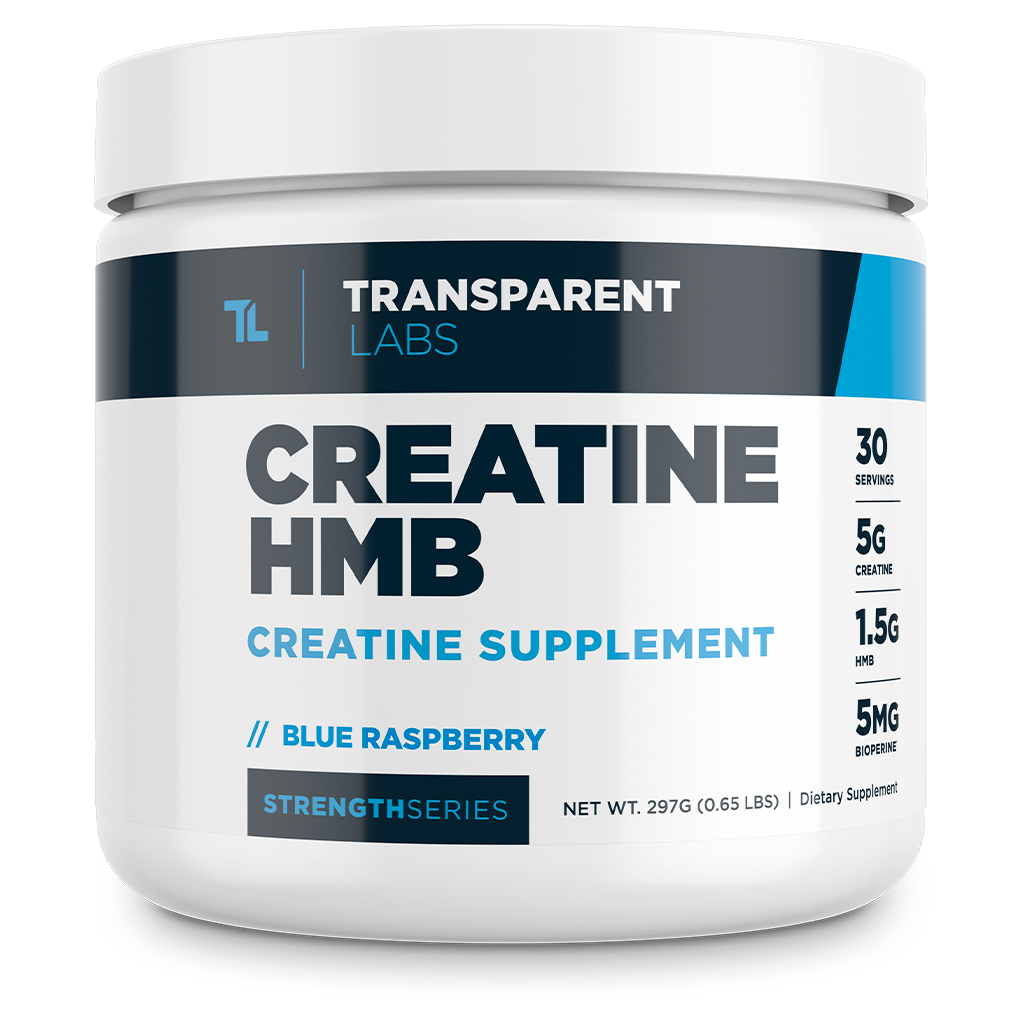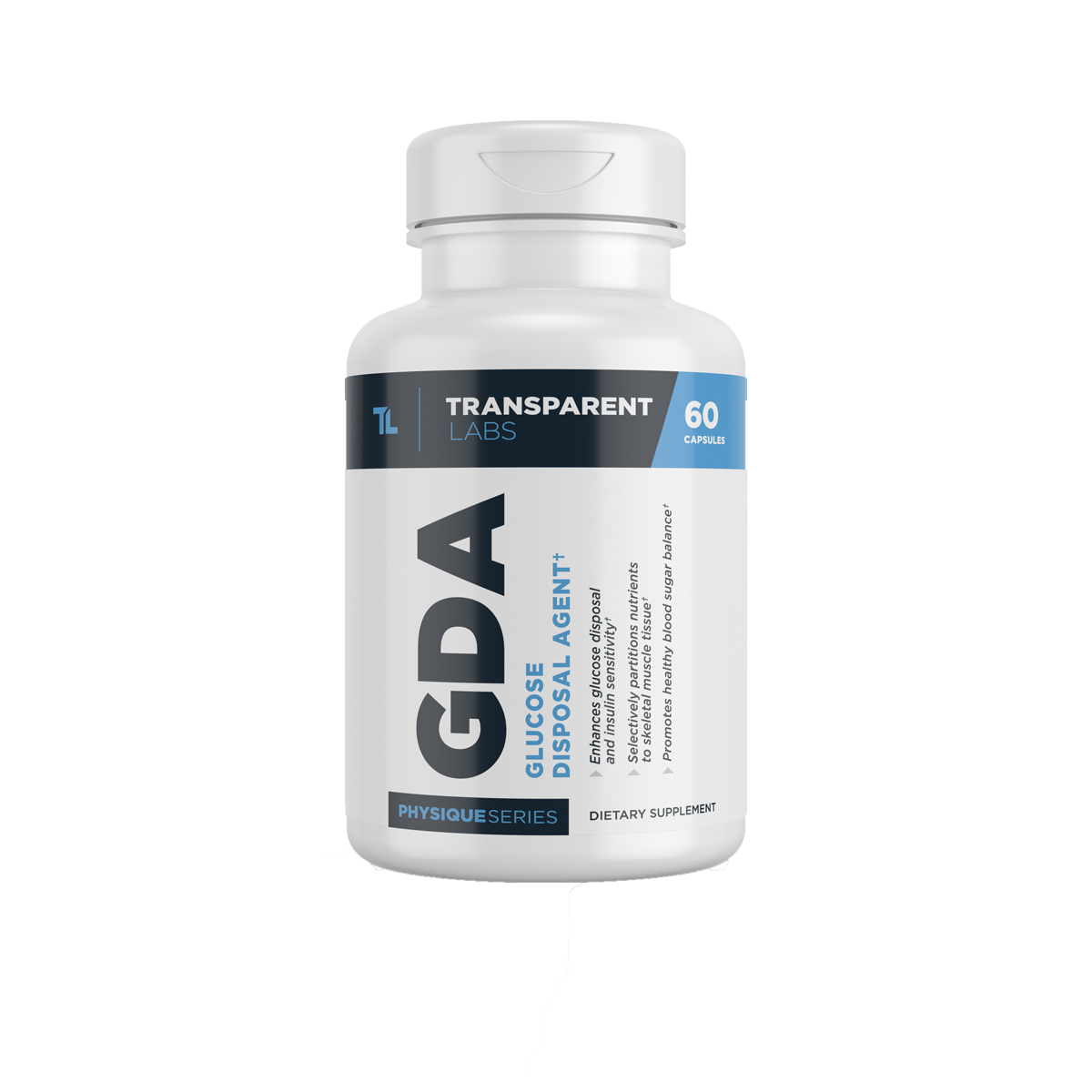What is a Lean Bulk? Build Muscle without Gaining Fat (in Excess)

Lean Bulking: Maximizing Muscle Growth and Minimizing Fat Gain
Lean bulking, also known as "clean bulking," is a method focused on boosting lean body mass while keeping the addition of body fat to a minimum. If your primary concern is simply gaining mass—regardless of whether it's fat or muscle—you can really consume nearly anything you desire.
This kind of "dirty bulking" is when someone eats basically anything and everything simply to gain muscle. Many gym-goers will use dirty bulking as an excuse to eat tons of junk. Sure, they might see significant muscle growth, but their waistline also expands.
While a dirty bulk may be pragmatic for true ectomorphs with ultra-high metabolic rates, it's generally not ideal for those who gain body fat easily.
It doesn't matter how much muscle you build as part of a dirty bulk plan if you have 50+ pounds of fat to get rid of when it's all said and done.
So, if you're wondering how to build muscle while limiting fat gain, lean bulking is the answer! Let's take a look at how to create a lean-bulk diet plan as well as which supplements to take for maximizing results.
Creating a Lean Bulking Diet Plan
The first step is to determine how many calories you should eat to maximize muscle growth while minimizing fat gain. You can do so easily with our calorie and macronutrient calculator.
For lean bulking, a sensible macronutrient ratio (as percentages of total calorie intake) to follow is:
- 25-30% protein
- 40% carbohydrate
- Fiber should account for ~15% of total carb intake
- 25-30% fat
- ~20% of which comes from saturated fat
Protein and carbohydrates contain four (4) calories per gram; fat contains nine (9) calories per gram. As an example, if you need 2,800 calories per day to build muscle, then your macronutrient intake will be:
- 2,800 x 0.30 = 840 calories from protein = 210 grams of protein per day
- 2,800 x 0.40 = 1,120 calories from carbohydrate = 280 grams of carb per day
- 2,800 x 0.30 = 840 calories from fat = 93 grams of fat per day
If your goal is to stimulate muscle growth without gaining a large amount of body fat, then it may be prudent to cycle your calorie intake. The most practical way to do this is to eat slightly fewer calories on days that you're less active (e.g. rest days).
Preferably, reduce your carbohydrate intake when cutting back on calories. Protein intake should remain relatively the same.
How much lean muscle mass should I be trying to gain per week?
A conservative muscle-gain goal for beginners is about 0.25-0.5 pounds per week. However, don't stress too much over weekly muscle growth during a lean bulk. It takes time to build muscle, and relying solely on your bathroom scale to gauge progress will likely mislead you. Focus on staying consistent and using the mirror/progress photos as a guide (in conjunction with bodyweight changes and body fat measurements if possible).
More experienced lifters may need months to gain muscle, especially if they are already near their genetic/natural potential in terms of lean mass. Newbies, on the other hand, are often able to consistently gain 1 pound per week of muscle with minimal fat gain for the first few months.
What if I’m gaining too much fat?
If you find you're gaining weight/fat tissue faster than you’d like, you may have overestimated your calorie needs. Either reduce your calorie intake on non-training days by 10% and/or add up to four 30-minute cardio sessions throughout the week. Then reassess your progress and see how your body responds.
Lean Bulking Nutrition Basics
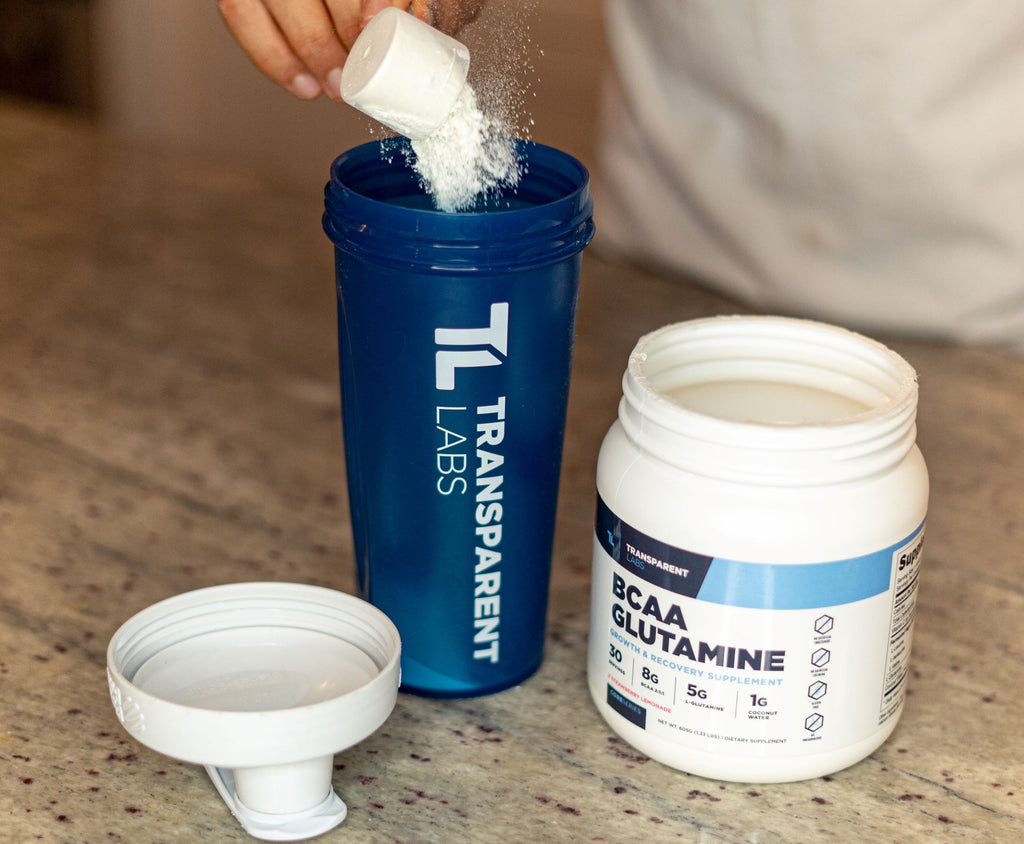
Macronutrients, or "macros," are the major components of diet. For humans, the four energy-containing macronutrients are protein, carbohydrate, fat, and alcohol. Water is also a macronutrient, albeit devoid of energy.
The primary role of calorie-containing macronutrients is to provide energy to the body [1]. However, there is much more to these substrates than just their energy provisions. Here are brief summaries of macronutrient physiology:
Protein
Protein is an essential macronutrient since the human body can't synthesize all of the amino acids necessary for proper biological function. In the context of lean bulking, protein is imperative for repairing and building new muscle tissue.
When you consume a complete protein source, such as chicken breast or whey protein, the body breaks down the amino acids into smaller peptide chains and individual amino acids. As these peptide fragments and amino acids are absorbed, they can be used to create new muscle proteins — the main constituents of muscle tissue. Hence, skeletal muscle tissue is the largest reservoir of amino acids in the human body [2].
For building muscle, aim for between 0.8 - 1.2 grams of protein per pound of body weight per day. Alternatively, follow the macronutrient ratios above (i.e. 25-30% of calorie intake from protein).
Fat
Another essential macronutrient, dietary fat is critical for providing fatty acids that comprise phospholipids in cell membranes. Fatty acids are also necessary for creating steroid hormones, insulating the body, and providing long-term energy [3].
Fatty acids come in either saturated or unsaturated forms. The reason some fat sources, like butter and margarine, stay solid at room temperature while others remain liquid is due to their composition of saturated and unsaturated fatty acids (the melting point of unsaturated fatty acids is higher than saturated fatty acids).
In general, your diet should contain mostly unsaturated fatty acids, particularly the essential omega-3s and monounsaturated fatty acids found in food like nuts, seeds, avocado, olive oil, and oily fish. However, the saturated fat in whole eggs, coconut, dairy, and meat is fine in moderation. Ideally, look for grass-fed dairy products and meat.
Carbohydrate
Carbohydrates, while not technically essential for survival, are crucial as part of a lean-bulking diet. Carbs are categorized as either simple sugars (e.g. mono-/di-saccharides) or complex sugars (e.g. polysaccharides). As you may have deduced, monosaccharides are “one-sugar (molecules)”, disaccharides are “two-sugar (molecules)” and polysaccharides are “multiple-sugar (molecules).”
Simple carbohydrates include household pantry staples such as table sugar (sucrose), dextrose/corn sugar (glucose), molasses, etc. Sources of complex carbohydrates include grains and plant foods, like oats, barley, quinoa, rice, lentils, potatoes, and others.
The majority of your carbohydrate intake should come in the form of complex/starchy carbs. However, it's certainly okay to eat some simple sugars, especially if it's naturally occurring (like the fructose in fruits).
Carbohydrates are ultimately broken down into simple sugar molecules and converted to ATP (adenosine triphosphate), the predominant form of chemical energy in cells.
In addition, glucose molecules may be linked together via glycogenolysis to form glycogen — a complex carbohydrate found mainly in liver and skeletal muscle tissue that serves as a form of long-term energy storage. When muscle is full of glycogen, it expands due to the accumulation of water. This creates the desirable "muscle fullness" many bodybuilders and gym-goers crave as part of a lean-bulk plan.
Fiber
Fiber is a subtype of carbohydrate that is resistant to digestion. As such, fiber provides a lower amount of energy than traditional carbohydrates. It's important to consume plenty of soluble and insoluble fiber, preferably from fibrous vegetables, fruits, and grains, as part of your lean-bulking diet as it aids digestion, the gut microbiome, intestinal function, and regularity.
Micronutrients

Micronutrients are constituents of food and liquids that don’t contain calories. Instead, they are like "helper molecules" that assist metabolic reactions and biological processes.
Micronutrients are typically categorized as either vitamins, minerals, polyphenols, or organic acids. Many of these compounds serve as antioxidants in humans, which are crucial for reducing oxidative stress.
The good news is that barring any preexisting medical conditions or micronutrient deficiencies, you don't need to strictly monitor micronutrient intake. As a bonus, many food-tracking apps will give you a general idea of your vitamin and mineral intake by default.
If you don't eat a moderate amount of plant foods, particularly fresh green vegetables or fruits, then it might be wise to consider a quality multivitamin supplement.
Water
Intuitively, you should be drinking plenty of water daily since hydration is vital for athletic performance and cellular function. A good rule of thumb is to drink about 3 liters of water per day [4]. However, you may require even more if you carry more muscle mass or live an extremely active lifestyle.
When in doubt, monitor the color of your urine; if it’s a yellowish-orange hue, drink more water. If it’s clear, you’re good to go. (If it's red, call your doctor...)
Best Foods to Eat for Lean Bulking
In reality, there are no "best foods" to build muscle, nor are there foods that are inherently "off-limits." As long as you're meeting your calorie and macronutrient needs, food choice isn't much of a concern.
That being said, the majority of active gym-goers stand to benefit by emphasizing minimally processed foods like complex carbohydrates from whole grains, essential fatty acids from nuts and seeds, and complete protein from lean meats, dairy, poultry, eggs, and plant foods. And of course, plenty of fruits and vegetables to help meet fiber and micronutrient needs.
Note that the above foods are just examples; it's wise to experiment with different foods and find what works best for you and your body. If you’re a vegetarian or vegan, emphasize plant-based proteins like brown rice protein and pea protein as these provide all the essential amino acids.
What Supplements to Take for Muscle Growth?
Before discussing supplement recommendations for your lean-bulk plan, know that supplements aren't as critical for success as a proper diet and diligent workout routine. This is not to say that supplements are worthless, but rather that the most beneficial thing you can do is nail your diet every day and train consistently, then let the supplements work their mojo.
Note: You can find all of the supplements below in the Transparent Labs Muscle-Building Essentials Stack (pictured above).
Pre-workout Supplement
- If you want to perform better in the gym, a quality pre-workout formula can do just the trick; Transparent Labs BULK Pre-Workout features evidence-based ergogenic ingredients like citrulline malate, caffeine, beta-alanine, betaine anhydrous, and branched-chain amino acids (BCAAs) to facilitate strength, recovery, and muscle pumps when you're cranking out reps.
Protein Powder
- Transparent Labs Grass-Fed Whey Protein Isolate makes it a cinch to meet your lean-bulking protein needs every day while being gentle on the stomach (and delicious). If you're on a plant-based diet, opt for Organic Vegan Protein Powder.
- Casein protein powder digests slowly and is ideal for supporting muscle growth while you sleep.
- Use protein powder as needed to meet your daily protein intake goals.
Creatine Monohydrate
- You can’t really go wrong by using a creatine monohydrate supplement. Creatine is undoubtedly the most effective sports supplement for building muscle, increasing strength, and promoting athletic performance [5].
- Look for a supplement that provides high-quality Creapure® creatine monohydrate, such as TL Creatine HMB.
- The recommended dose of creatine monohydrate is 3,000-5,000 mg per day (or 15 mg/kg body weight)
Krill Oil (Omega-3 Essential Fatty Acids)
- Krill oil provides highly bioavailable omega-3 EFAs, specifically EPA and DHA, in the form of phospholipids.
- EPA and DHA help reduce LDL cholesterol and keep blood lipid profiles in a healthy range [6].
- Taking krill oil can also support joint and skin health, as well as cognitive function [7, 8].
Can I build muscle without supplements?
Of course! Your diet will have a much greater impact on your long-term muscle growth. Supplements are not magic and won’t do the work for you.
Lean Bulking Workout
Now that you have a grasp of how to eat for lean mass while limiting fat gain, you need a solid muscle-building workout routine to follow. Check out this Guide to Powerbuilding to go along with your lean-bulking diet!


